#romanian vocabulary
Text
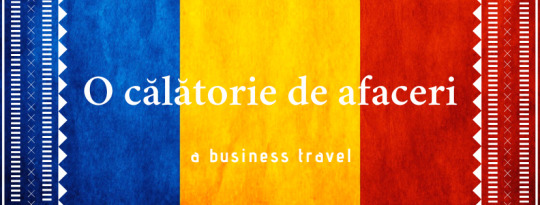
A călători - to travel
Am venit în interes de serviciu - I'm here on business
Am o întâlnire cu... - I have a meeting with...
Mâine am o întâlnire cu... - Tomorrow I have a meeting with...
Unde este...? - Where is...?
Unde este centrul de afaceri? - Where's the business center?
Unde este sala de conferințe? - Where's the conference room?
Unde este sala de ședințe? - Where's the meeting room?
Sunt aici pentru... - I'm here for...
Sunt aici pentru un seminar - I'm here for a seminar
Sunt aici pentru o conferință - I'm here for a conference
Sunt aici pentru o întâlnire de afaceri - I'm here for a business meeting
Sunt aici pentru o întâlnire - I'm here for a meeting
Luați loc, vă rog - Take a seat, please
Dați-mi voie să vă prezint... - Allow me to introduce...
Aș vrea să fac o fotocopie - I would like to make a photocopy
Aș vrea să trimit un e-mail - I would like to send an e-mail
Aș vrea să trimit un fax - I would like to send a fax
Mi-a făcut plăcere să vă cunosc - It was a pleasure to meet you
Mă bucur să te cunosc - Nice to meet you
#learn romanian#romanian#romanian vocabulary#limba romana#romanian langblr#romanian language#romanian vocab#romanian conversational phrases#in romanian#rumuński#romanian learning#learnromanian#learn romanian with me#expresii conversationale#romanian phrases#Useful Phrases#romanian tumblr
51 notes
·
View notes
Text
Colors (Romanian)
black = negru
white = alb
grey = gri
blue = albastru
yellow = galben
green = verde
orange = oranj
purple = purpurie
brown = maro
pink = roz
#langblr#studyblr#notes#romanian#vocabulary#romanian vocabulary#romanian langblr#colors#color vocabulary
30 notes
·
View notes
Text
Me greeting the french major with a bonjour and her hitting me with a buongiorno back <3
#waiting for our english lecture to start just exchanging vocabulary#in the end most of my friends are romance language majors. just me and the spanish major and the french major bout to find a portugese#major and a romanian major and a latin major so we can recreate the roman empire or smth
9 notes
·
View notes
Photo

Indoeuropean languages in Europe
Historical Roots: The Indo-European language family is believed to have originated in the Eurasian Steppe around 4000-2500 BCE. From there, groups of speakers migrated to various parts of Europe, contributing to the linguistic diversity of the continent.
by hunmapper
Language Diversification: Indo-European languages in Europe have evolved into numerous branches and sub-branches. Some of the major branches include:
Romance Languages: Descendants of Latin, including French, Spanish, Italian, Portuguese, and Romanian.
Germanic Languages: Including English, German, Dutch, Swedish, and others.
Slavic Languages: Such as Russian, Polish, Czech, and Bulgarian.
Celtic Languages: Including Irish, Scottish Gaelic, and Welsh.
Hellenic Languages: Mainly Greek.
Baltic Languages: Such as Lithuanian and Latvian.
Indo-Iranian Languages: Including Hindi, Bengali, and Persian.
Cultural Significance: Indo-European languages have played a pivotal role in shaping European culture, history, and literature. Greek and Latin, for instance, have had a profound influence on science, philosophy, and the development of the Roman Empire.
Language Revival: Some Indo-European languages in Europe, such as Irish and Welsh, have experienced language revival efforts in recent decades. These efforts aim to preserve and revitalize languages that were declining in usage.
Language Contact: Due to centuries of contact and migration, many Indo-European languages have borrowed words and phrases from each other. This phenomenon, known as linguistic borrowing, has enriched the vocabulary and expressions of these languages.
182 notes
·
View notes
Text
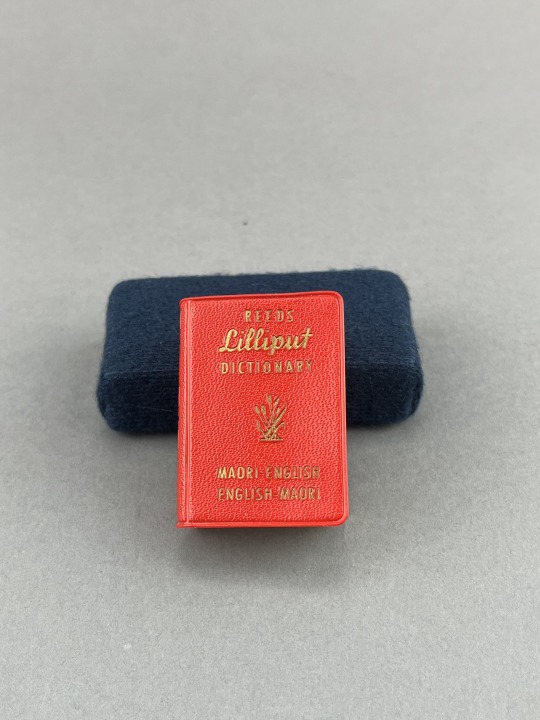
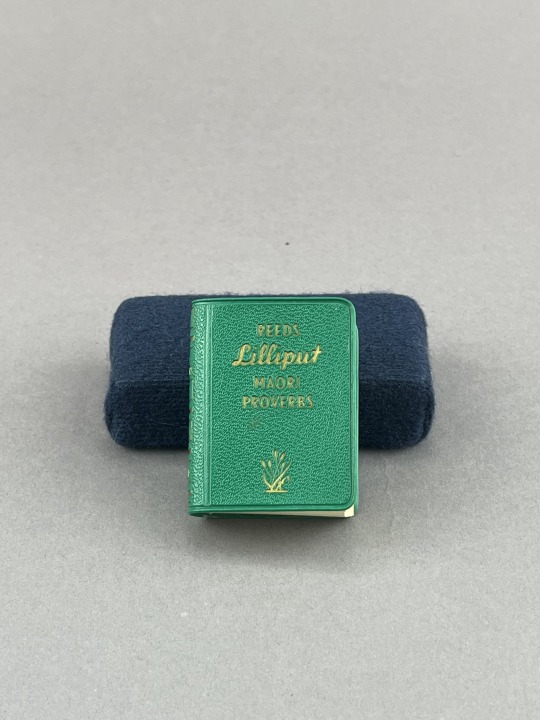
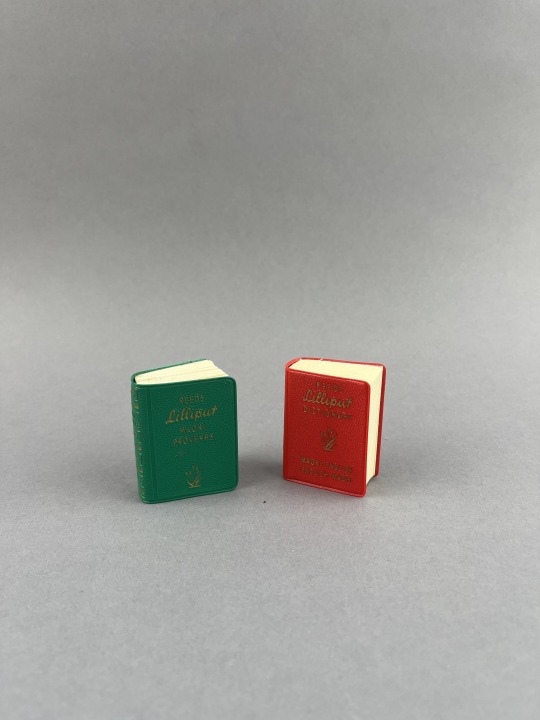
#MiniatureMonday
Happy Māori Language Week from Special Collections & Archives!
Te Wiki o te Reo Māori, Maori Language Week, is celebrated annually the week of September 14th to commemorate Te Wā Tuku Reo Māori, the Maori Language Moment, which stamps the presentation of the Maori Language Petition in New Zealand at 12 pm on September 14, 1972.
Te Reo Māori is the language of New Zealand's Indigenous Maori people. It is a part of the Austronesian language family and shares its roots with other island languages including Tahitian and Hawaiian. The celebration of Te Wiki is rooted deeply in efforts to revitalize the Māori language after years of the speaking and use of te reo was banned in schools. Today, te reo Māori is the official language of New Zealand, or Aotearoa as it is called by the Indigenous people. It has become increasingly used in New Zealand society, culture, and professional institutions. The Māori language has also become something of global interest, with the popularization of the language through its presence in music, film, television, and sports commentary.
In the United States, Polynesians as a whole make up less than half of a percent of the American population, with Māori people as one of the smallest migrant populations. Still, for those living abroad or interested in learning the language from afar, the language revitalization movement has certainly spread to the United States, along with its learning materials and resources.
There is a Māori proverb that reads ahakoa he iti he pounamu, "although it is small, it is greenstone." This refers to the importance of things small but precious, such as these miniatures!
The Reeds' Lilliput Māori dictionary and Reeds' Lilliput Māori proverbs live in Special Collections as part of the Smith Miniature Book Collection. These 5cm tall miniature books were published by A.W. Reed in the early 1960s, the dictionary in 1960 as part of a collection of miniature dictionaries made popular by other global publishers. The book of whakatauki, Māori proverbs, joined the mini-dictionary in 1964. Other language dictionaries include Spanish, French, and Romanian. Due to their size, it is likely that these books were made to entertain more so than educate. Still, they are certainly one of the many taonga, treasures, of Special Collections.
Te Wiki o te Reo Māori 2023 begins Monday, September 11, and concludes Sunday, September 17. Celebrate through songs, stories, conversations, or by learning some library-related Māori vocabulary! You can also visit the University of Iowa LibGuide on learning beginner's te reo Māori.
NGĀ KUPU WHARE PUKAPUKA LIBRARY VOCABULARY
pukapuka book
pūranga archive
whakaputunga collection
kaitiaki pukapuka librarian
wāhi tuku pukapuka reference desk
pānui to read
ako to learn
--From M Clark, Instruction GA
Reeds' proverbs (SMITH PL6465.Z77 .R44 1964) and Reeds' dictionary (SMITH PL6465.Z5 .R44 1960)
#uiowa#special collections#miniaturemonday#uiowaspecialcollections#rare books#library#maori culture#te reo maori#proverbs#new zealand
80 notes
·
View notes
Text
Right, I'm getting tired of not being able to talk about and even TO my non-binary friend in Romanian without feeling like I'm misgendering them.
(We have no neutral pronouns)
So I'm taking an executive decision

(Yes i know they're silly, bear with me)
Pronume personal:
Singular:
M: El
F: Ea
N: Em*
*Evident, dat fiind că "El" se pronunță "iel" și "Ea" se pronunță "ia", "Em" s-ar pronunța "iem".
Plural:
M: Ei
F: Ele [doar fete]
N: Eme [doar persoane nb]
(a LOT more under the cut)
Personal de politețe:
M: Dânsul, dânșii
F: Dânsa, dânsele
N: Dânsol, dânșole
M: dumnealui
F: dumneaei
N: dumneasa
Pronume personal, Acuzativ (clitic):
M: Îl ajut pe el
F: O ajut pe ea
N: Ol ajut pe em**
**Negativ:
Normal: Nu ol ajut
Elidat: N-ol ajut
Pronume personal, Dativ:
M: Lui i s-a părut ciudat
F: Ei i s-a părut ciudat
N: Loi i s-a părut ciudat***
***Ideal ar fi fost "Lei" dar avem deja banii și animalele.
Pronume personal, Genitiv/ Pronume posesiv:
M: [creionul] lui/său
F: [creionul] ei/ său
N: [creionul] loi/ său
Pronume demonstrativ(e):
M: Toți [doar băieți sau mixt]
F: Toate [doar fete]
N: Toați [doar persoane nb]
M: Același
F: Aceeași
N: Acemași
M: Cel care cântă
F: Cea care cântă
N: Cem care cântă
Terminații adjective:
M: Trist
F: Tristă
N: Tristî (silabisit/ ca la F: trís-tă/ trís-tî)
Superlativ:
M: Cel mai trist
F: Cea mai tristă
N: Cem/ cen mai tristî****
****Prefer varianta cu "m" în majoritatea cazurilor, dar aici când zis repede cele două m-uri (cem mai) s-ar contopi. Dacă e prea derutantă această contopire s-ar putea folosi varianta cu "n"(cen mai).
[Buckle up, de aici devine mai ciudățel]
Substantive:
M: Prieten, prieteni
F: Prietenă, prietene [doar fete]
N: Prietenî, prietenoi [doar persoane nb]
Articole:
Nehotărât, sg Nom/Ac
M: Un prieten
F: O prietenă
N: Ul prietenî
Nehotărât, sg Gen/Dat
M: Unui prieten
F: Unei prietene
N: Unoi prietenî
Hotărât, sg Nom/Ac
M: Prietenul (meu/ tău)
F: prietena (mea/ ta)
N: Prietenol (meu*****/ tou)
*****Parca "mou" nu sună atât de bine
Hotărât, pl Nom/Ac
M: Prietenii
F: Prietenele [doar fete]
N: Prietenolii [doar persoane nb]
Hotărât, sg Dat/Gen
M: Prietenului
F: Prietenei
N: Prietenoloi
Hotărât, pl Dat/Gen
M: Prietenilor
F: Prietenelor [doar fete]
N: Prietenolor [doar persoane nb]
.....
Ok yes they do sound silly at first but I really think they would fit nicely in the Romanian vocabulary... After some getting used to.
Anyway if you like them spread the word byeeee
#nonbinary#queer#lgbt#transgender#romania#romanian#neopronouns#they/them#pronouns#grammar#lol#it does look like a page out of my romanian grammar books
13 notes
·
View notes
Text
OC MANNERISMS: VALERIUS DRAGAVEI
tagged by @silversiren1101 to fill out this template for an oc of choice. I really needed to refamiliarise myself with Valerius, so the son is getting the honour.
as per usual, consider this an open tag if you haven't done it already.

art by @/mformultiverse
BASICS
- NO. OF SPOKEN LANGUAGES >> Varisian (Ustalavic, first language), Taldane, Necril, some Skald (poetic only)
- TONE OF VOICE >> high / average / deep - has the male Pious voice in game.
- ACCENT >> yes / no - a rich, warm baritone with a strong Ustalavic accent. RL equivalent would be Romanian.
- DEMEANOR >> confident / shy / approachable / hostile / other - he prefers to come across both confident and approachable as both a hunting tactic and as a result of his upbringing.
- POSTURE >> slumped / straight / stiff / relaxed - Dragaveis do not slouch.
HABITS
head tilting / swaying / fidgeting / stuttering / gesturing / arm crossing / strokes chin / er, um, or other interjections / plays with hair or clothing / hands at hips / inconsistent eye contact / maintains eye contact / frequent pausing / stands close / stands at a distance
COMPLEXITY (Fill in the circle’s as you wish)
- VOCABULARY >> ⚫️⚫️⚫️⚫️⚫️ - as expected of a nobleborn, a silvertongued lawyer and later a cult leader. He knows what words to use and how to use them well, and his education and upbringing has afforded him wide vocabularly access.
- EMOTION >> ⚫️⚫️⚫️⚫️⚪️ - a critique of Zacharius' was that Valerius, like his progenitor, is too full of passion to be a perfect undead, and that spills through in his speech. He can use it to his advantage, such as passionately defending a client (correctly) accused of murder or when addressing his congregation; but it's also a disadvantage; it means he can struggle to hide his emotions when he need to and those who either know him well enough or have a high perception can tell when something is wrong.
- SENTENCE STRUCTURE >> ⚫️⚫️⚫️⚫️⚫️ - long, elaborate sentences are his bread and butter, at least in his native Varisian.
PROFANITY
- FREQUENCY >> ⚫️⚫️⚪️⚪️⚪️ - it's not that he doesn't swear, I just can't imagine him doing it outside of any specific circumstances. His mother taught him better than that.
- CREATIVITY (in regards to profanity) >> ⚫️⚫️⚫️⚪️⚪️ - he can get very colourful at least in Varisian profanity, but in Taldane, not so much . Only the classics.
BOLD THAT APPLY
arse / ass / asshole / bastard / bitch / bloody / bugger / bollocks / chicken shit / crap / cunt / dick / frick / fuck / horseshit / motherfucker / piss / prick / pussy / screw / shit / shitass / son of a bitch / twat / wanker
THIS OR THAT
straightforward or cryptic? / finding the right word or using the first word that comes to mind? / masculinity, neutrality, or femininity? / formalities or with abrasiveness? / praise or equivocation? / frankness or flattery / excessive or minimal hand gestures / name-calling or magnanimity? / friendly or blunt
IMPORTANT QUESTIONS
- DO PEOPLE HAVE A HARD TIME HEARING OR UNDERSTANDING YOUR CHARACTER?
almost always / frequently / rarely / never -his Taldane is practically native-speaker level that understanding him isn't so much of an issue.
- DOES YOUR CHARACTER’S POINT COME ACROSS EASILY WHEN THEY SPEAK?
almost always / frequently / sometimes / rarely / never - he's a(n ex-)lawyer after all.
- WOULD YOUR CHARACTER INITIATE CONVERSATIONS?
almost always / frequently / sometimes / rarely / never
- WOULD YOUR CHARACTER BE THE ONE TO END CONVERSATIONS?
almost always / frequently / sometimes / rarely / never
- WOULD YOUR CHARACTER USE ‘WHOM’ IN A SENTENCE?
yes / no / only ironically
- YOUR CHARACTER WANTS TO MAKE A COUNTERPOINT. WHAT WORD DO THEY USE?
but / though / although / however / perhaps / maybe
- HOW DOES YOUR CHARACTER END CONVERSATIONS?
walk away / ask if that’s everything / say that’s everything / give a proper goodbye / tell their company they're done here / remain quiet / they don’t — giving a proper goodbye is reserved for those he considers equals, allies or those higher up in the hierarchies (e.g. Camellia, Galfrey, Regill, Greybor) Everyone else gets a dismissal.
- WHAT SOCIAL CLASS WOULD OTHERS ASSUME YOUR CHARACTER BELONGS TO, HEARING THEM SPEAK?
upper / middle / lower - it's obvious and he wouldn't want it any other way. Valerius is not a social chameleon.
- IN WHAT WAYS DOES THE WAY YOUR CHARACTER SPEAK STAND OUT TO OTHERS?
accent / vocabulary / tone / level / politeness / brusqueness / it doesn’t — in Mendev at least, his accent does stand out quite a bit.
Anything that wasn’t touched on?
Rather than writing "best/kind regards", "with love" etc, Valerius will always sign off a letter "with esteem."
Valerius being raised by his Moroi father meant that he grew up with noble Moroi customs, so rather than have him kiss a lady's hand or cheek in greeting if it is not someone he is already intimate with - he will instead touch said hand or cheek with his own cheek. Kisses, as per custom, are too much akin to feeding and feeding is a private, intimate affair often done behind closed doors. He does have exceptions to that rule (for example, if he is doing it with the intention of feeding from that person; or if it is his partner) but for the most part he's quite strict about it.
17 notes
·
View notes
Text
One thing about my language learning schedule is that I'm prioritising reading this year.
People talk a lot about the different skills one should learn and yes if you're looking to be fluent and use your language in your daily life you should probably focus on speaking, reading, writing and listening.
I'm training to be a translator and I'm focusing on Spanish, Romanian and Croatian this year to eventually add them as languages I translate out of. This means that my strongest skill has to be reading. I'm totally fine with not having the best accent or spelling. I also want to regain my confidence speaking Spanish but reading is a main career goal.
Yiddish I'm really interested in from a literary perspective and while I also want to be able to speak it better, this year I want to primarily work on my reading comprehension and vocabulary.
Korean is probably the language where I'm most interested in a balanced skill set but I'm approaching it very slowly and my main goal is just a very basic beginner level at the moment.
36 notes
·
View notes
Text
OC MANNERISMS-LAIRA
It's been 88 years since I've been tagged in this but FINALLY. FINALLY I CAN WORK ON TAGGED THINGS. HUZZAH.
Art by @ssuzu!

BASICS
- NO. OF SPOKEN LANGUAGES >> Taldane, Celestial, Gnomish, Varisian (native tongue), Necril
- TONE OF VOICE >> high / average / deep
Average in a way that her tone is a little lower than average but she tends to speak in her upper voice a lot.
- ACCENT >> yes / no
She has a pretty strong Ustalavan accent given that's where she was raised all her life. (Romanian for an IRL reference)
- DEMEANOR >> confident / shy / approachable / hostile / other
It's not shy per se, but it's not...someone who's easily approachable. She's not really hostile but she does carry herself as someone who would very much rather keep to herself than maintain a conversation.
- POSTURE >> slumped / straight / stiff / relaxed
Her posture is so stiff she is like a twig someone give her a shoulder massage PLEASE.
HABITS
Rests her chin on her hand when she's deep in thought.
Does not have consistent eye contact though that's hard to tell with her glasses.
Crosses her arms when she's in war councils.
Frequent pausing, almost as if she's trying to plan out every single word she makes.
COMPLEXITY (Fill in the circle’s as you wish)
- VOCABULARY >> ⚫️⚫️⚫️⚪️⚪️
Probably more of a standard vocabulary. She speaks as *if* she'd know harder words but I think that's more how she carries herself rather than what words she understands.
- EMOTION >> ⚫️⚪️⚪️⚪️⚪️
She tries to keep her emotions very much in check on the regular, and sometimes the delivery comes across as very flat.
- SENTENCE STRUCTURE >> ⚫️⚫️⚫️⚪️⚪
Pretty standard in terms of structure, but can occasionally go into vague territory.
PROFANITY
- FREQUENCY >> ⚫️⚪️⚪️⚪️⚪️
What are swears? Jk jk I think she's only sworn like...three times in her life.
- CREATIVITY (in regards to profanity) >> ⚫️⚪️⚪️⚪️⚪️
BOLD THAT APPLY
arse / ass / asshole / bastard / bitch / bloody / bugger / bollocks / chicken shit / crap / cunt / dick / frick / fuck / horseshit / motherfucker / piss / prick / pussy / screw / shit / shitass / son of a bitch / twat / wanker
THIS OR THAT
straightforward or cryptic? / finding the right word or using the first word that comes to mind? / masculinity, neutrality, or femininity? / formalities or with abrasiveness? / praise or equivocation? / frankness or flattery / excessive or minimal hand gestures / name-calling or magnanimity? / friendly or blunt
IMPORTANT QUESTIONS
- DO PEOPLE HAVE A HARD TIME HEARING OR UNDERSTANDING YOUR CHARACTER? almost always / frequently / rarely / never
While Laira tends to come off as quiet, she has an assertive nature and speaks her words out with clarity.
- DOES YOUR CHARACTER’S POINT COME ACROSS EASILY WHEN THEY SPEAK?
almost always / frequently / sometimes / rarely / never
- WOULD YOUR CHARACTER INITIATE CONVERSATIONS?
almost always / frequently / sometimes / rarely / never
- WOULD YOUR CHARACTER BE THE ONE TO END CONVERSATIONS?
almost always / frequently / sometimes / rarely / never
- WOULD YOUR CHARACTER USE ‘WHOM’ IN A SENTENCE?
yes / no / only ironically
- YOUR CHARACTER WANTS TO MAKE A COUNTERPOINT. WHAT WORD DO THEY USE?
but / though / although / however / perhaps / maybe
- HOW DOES YOUR CHARACTER END CONVERSATIONS?
walk away / ask if that’s everything / say that’s everything / give a proper goodbye / tell their company they're done here / remain quiet / they don’t
- WHAT SOCIAL CLASS WOULD OTHERS ASSUME YOUR CHARACTER BELONGS TO, HEARING THEM SPEAK?
upper / middle / lower
10 notes
·
View notes
Text
Resource List for Learning Romanian
Hi Language Enthusiasts,
Do you want to learn Romanian but don’t know where to start? Then I’ve got the perfect resource list for you and you can find its links below. Let me know if you have any suggestions to improve it. I hope everyone can enjoy it and if anyone notices any mistakes or has any questions you are free to PM me.
Here is what the resource list contains;
Handmade resources on certain grammar concepts for easy understanding.
Resources on learning pronunciation.
Websites to practice reading.
Documents to enhance your vocabulary.
Notes on Colloquial Language.
Music playlists
List of podcasts/audiobooks And a compiled + organized list of websites you can use to get hold of grammar!
https://docs.google.com/document/d/1V849Z25xYNjhQTM2qGfHMXuJl07A6Lc19s7y2kqNFs4/edit?usp=sharing
#romania#romanian#learn romanian#română#românia#studyblr#study blog#langblr#language#languages#language learning#language resources#romanian language#romanian langblr#bucharest#linguistics#linguist#learn#learning#learning romanian#romanian learn#study#grammar#pronunciation#etymology
128 notes
·
View notes
Text
Polari
What is Polari?
Polari is an argot, a method of communication more complex than slang, but not quite a stand-alone language. It was used from approximately 1910-1950 in England, and until the 1980s in Australia by queer men and drag queens working around the law. There were many, many dialects, even a singular city such as London could have three or four separate styles.
Where did Polari come from?
Cant
Thieves' Cant is an anti-language with roots in the 1500s, used primarily in England by beggars, criminals, Romani people, queer people, and anyone else from the large swaths of people who had reason to avoid the police. (x) It was commonly believed that Cant developed from Romany, but modern research shows Romany and Cant to be distinct. (x)
The name derives from the Latin word "canto", "to sing", referencing the sing-song way beggars spoke. (x)
Because of its nature, we have little to no record of any actual translations. Today, it is used in some DnD games and TV shows for added immersion.
Parlyaree
Later on, to distinguish themselves from the Romani people, other travelling entertainment companies developed their own argot. (x)
Fairground Parlyaree, also known as backslang, became a marker of cultural outliers, although it was quite group-specific and only the core vocabulary stayed the same. (x)
Cockney Rhyming Slang
Polari also took vocabulary from Cockney Rhyming Slang, where words are replaced with a rhyming equivalent (Adam and Eve = believe, as in "would you Adam and Eve it?"). (x)
This slang was used by the poorest classes of London, so it is no surprise that it melted into what would become Polari. (x)
Other Influences
Polari borrowed heavily from Yiddish, Romanian, French, and Italian because of its history and origins.
When did Polari become Queer?
The argot was used by many different groups, from fishermen, to travelling entertainers, to actors, and navy vets from the 1800s on, but when it was repopularized by drag queens in the 1910s and 20s, it was used primarily by the queer community.
Why did Polari fall out of use?
There are three main reasons this happened.
Firstly, in 1967, homosexuality was decriminalized in England, and so Polari was no longer necessary.
Secondly, a radio show called "Round the Horn" (1965-1968), which featured two gay men speaking to each other in Parlyarlee, was discovered by non-queer audiences, and the "code" was largely cracked. Although it was true that because of the variation there was no way listeners would understand every dialect, the base vocabulary was so similar that a passer-by would be able to clock Polari and out the person.
Thirdly, Polari comprised of a lot of bigoted slang and language. This discouraged many involved in the civil rights movement (and of course many people of those marginalized groups) from keeping up with the argot.
However, a few words, such as camp, butch, and fish, have survived and are still used in queer and drag communities.
Additional viewing:
(x, x, x, x, x, x, x)
68 notes
·
View notes
Photo

Aşezaţi-vă pe scaun - sit down on the chair
Deschideți gura - open your mouth
Care dinte vă doare? - which tooth hurts?
Mă doare teribil acest molar de sus - this upper molar hurts terribly
Mă doare teribil acest molar de jos - this lower molar hurts terribly
Mă doare teribil acest dinte - this tooth hurts terribly
Mă doare un dinte - I have an aching tooth
Cred că mi-a căzut plomba - I think I lost a filling
Mi s-a umflat gingia - my gum is swollen
Îmi sângerează gingiile - my gums are bleeding
Trebuie să vă faceți radiografia dentară digitală, este obligatorie pentru stabilirea unui diagnostic corect - you need to have a digital dental x-ray, it is mandatory to establish a correct diagnosis
Dintele are o carie mică - the tooth has a small cavity
E o carie la dintele numărul şase - there's some cavity on number six
Molarul este complet cariat - the molar is completely decayed
Am spart un dinte - I cracked a tooth
O să doare? - is it going to hurt?
Nu vă fie teamă, n-o sa doară - don't be scared, it's not gonna hurt
Nu închideți gura ta - do not close your mouth
Timp de două ore, nu mâncați - don't eat for two hours
Cât durează tratamentul ia? - how long does the treatment take?
Când trebuie să vin din nou? - when do I have to come again?
Reveniți peste o săptămână - come back in a week
#romanian#limba romana#in romanian#romanian langblr#romanian language#romanian vocabulary#expresii conversationale#limba română#Romania#romanian tumblr#expressions#language tumblr
35 notes
·
View notes
Photo
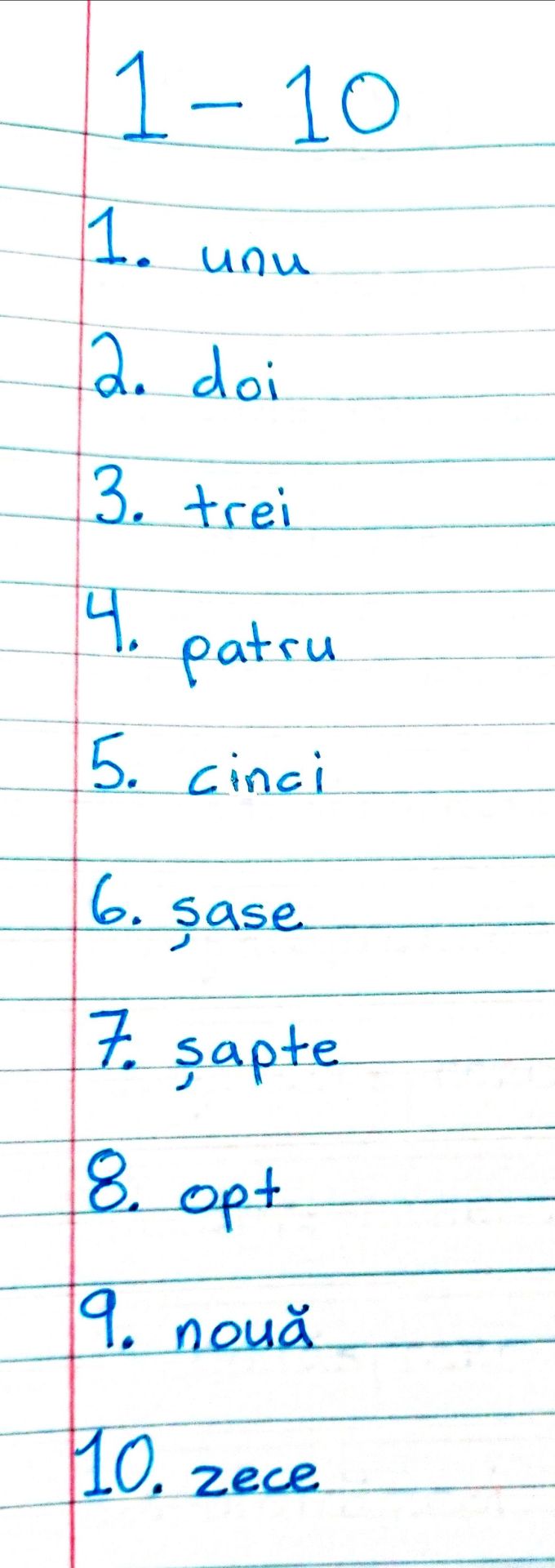
#studyblr#notes#romanian#romanian studyblr#romanian notes#languagae#langblr#romanian language#romanian langblr#vocab#vocabulary#romanian vocabulary#romanian vocab#numbers#numbers in romanian#romanian numbers#romanian language numbers#romanian number vocabulary
12 notes
·
View notes
Text
@zeldaxxi kindly informed me that in the Romanian soap opera based on the Turkish Aşk-ı Memnu soap opera, the Nihal equivalent calls Bihter (and Firdevs) “butt naked beggars who drove her father crazy" , and tells her she would shoot her.
Book Nihal could say this if she had this vocabulary.
The Romanian writers who never laid eyes on the book unironically had a better Nihal than in the Turkish soap opera version.
7 notes
·
View notes
Text
My favourite language learning app for building vocabulary.
Drops has helped me to build my irish vocabulary because of the extensive catagories to choose from i can learn what I want to learn. I also find it helpful because in the free version you can only do five minutes a day. I find that for me it keeps me motivated and makes me pay more attention to the words as occasionally you will have to spell them. I personally find the app helpful for adding vocabulary to my knowledge but it does lack grammar and actual sentences.
Theres many different languages on drops and these are:
ainu, arabic, ASL, bosnian, catalan, chinese (cantonese), chinese (mandarin), croatian, danish, dutch, british and american english,
Esperanto, estonian, finnish, french, galician, german, greek, hawaiian, hindi,
hungarian, icelandic, igbo, indonesian, irish, italian, japanese, korean, norweigan,
persian, polish, brazilian portugues, european portugues, romanian, russian,
samoan, sanskrit, serbian, european spanish, mexican spanish, swahili,
swedish, tagalog, te reo maōri, thai, turkish, ukrainian, vietnamese, yoruba
#irish#gaeilge#languages#te reo maori#hungarian#japanese#korean#chinese#mandarin#cantonese#greek#german#deutsch#finnish#swedish#icelandic#norwegian#danish#dutch#catalan#galician#bosnian#russian#ukrainian#serbian#indonesian#vietnamese#portuguese#italian#hindi
14 notes
·
View notes
Text
Castlevania + modern Romania
basically if the castlevania characters lived in modern Romania
im romanian btw !

the die hard patriot
trevor usually makes the slow ardelean jokes around him and alucard sulks for 3-5 business days about it
“de ce-l enervezi ma jegule?” you’d jump to the dhampire’s defence, struggling to keep yourself from laughing
drives a dacia 1300 because “those were the good old days”
would pick you up in it and you’d absolutely want to die even more so if Trevor and Sypha happen to be visiting
“Baaaaa, cu tigaia se fac clătite nu se iese pe strada” (you use the pan to make pancakes not go out on the street)
and you can’t even say anything because 😔
refuses to listen to manele or any new music + has every stela enache, gheorghe gheorghiu and mihaela runceanu record kept in absolute pristine condition
you’d be lying however if you didn’t absolutely adore when he would put old songs on and grab you to dance around, laughing while singing along
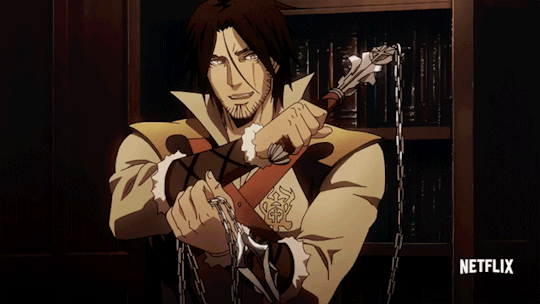
antena 3 and euforia on full blast every day
manelistu strazii
top 5 words in his vocabulary include but are not limited to: țeapă, prințesa, sa moara *insert any person to ever make his acquaintance*, bă / mă, cafeluța și tigara
“Lecții de viața” enthusiast and absolutely nobody can convince him these stories are fake
“Auzi, dacă mi-as pierde jobu ca Bogdan, m-ai lasa?” (if I lost my job like bogdan, would you leave me?)
“tu acuma n-aj job ma nenorocitule” youd roll your eyes and he laughs, grabbing your face between his hands and pressing kisses all over your face
“Sa știi ca ești rea de tot,”(you know you’re really bad) he would tease but refusing to believe that show is scripted
#also short and just kinda funny#fellow Romanians will know exactly what I mean by these#fluff#castlevania imagine#castlevania x reader#castlevania scenarios#castlevania headcanon#alucard x reader#trevor headcanons#trevor x reader#alucard headcanons#alucard tepes#trevor belmont#xreader
252 notes
·
View notes